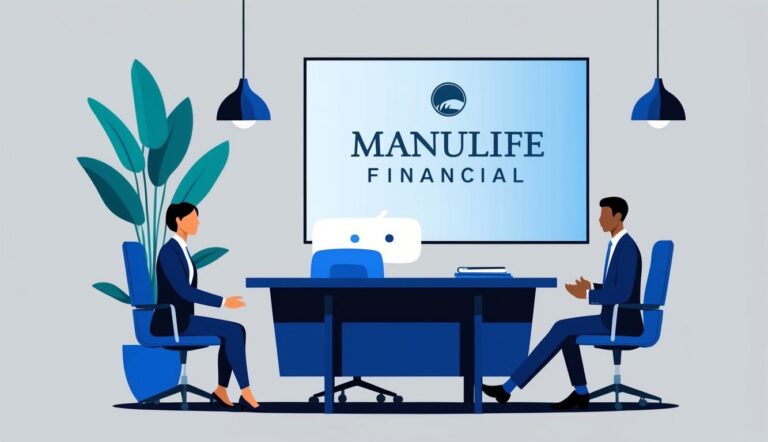150 Deutsche Bank Interview Questions: Preparation Guide (with Sample Answers)

If you’re preparing for a job at Deutsche Bank, knowing the top interview questions can be a game changer. Understanding the types of questions you might face can help you stand out in the competitive recruitment process. This post covers 100+ Deutsche Bank Interview Questions.
Interviews at Deutsche Bank can cover a range of topics, from technical skills to personal experiences.

You’ll likely encounter questions designed to test not only your knowledge but also how you handle pressure and solve problems.
It’s important to practice your responses to demonstrate your fit for the role and the company culture. Dive into specific examples of your past experiences that highlight your strengths.
The process can vary depending on the position you’re applying for, but being well-prepared is crucial. By knowing what kinds of questions to expect, you can build confidence and improve your chances of success. This guide covers 150 potential interview questions, providing you with a solid foundation to tackle your interview at Deutsche Bank.
Online Assessments: Deutsche Bank

When applying for a position at Deutsche Bank, online assessments play a crucial role. They often include a Reasoning Test to evaluate your math skills, and a Situational Judgement Test to assess decision-making.
Your resume and cover letter are also essential for showcasing relevant experience and skills.
Situational Judgement Test
This part focuses on how you handle work-related situations. You’ll face scenarios similar to those in a real job environment. Each scenario will have several response options.
Pick the one you think is best for solving the issue. This shows how well you work in a team and make decisions under pressure.
To prepare, practice common workplace dilemmas. Consider what is best for the company and the people involved. Keep in mind the core values and standards of behavior at Deutsche Bank. Practicing these tests online can give you confidence and improve your performance in the actual assessment.
Resume and Cover Letter Tips
Your resume and cover letter are vital for making a strong first impression. Ensure both documents highlight your skills and experiences relevant to the role.
Use clear, concise language and focus on your achievements. Tailor these to reflect the job description and company values.
In your resume, use bullet points for easy reading. Bold key achievements or skills to draw attention. For the cover letter, address it to the hiring manager. Be direct about why you’re a good fit. Providing specific examples of past successes can indicate your potential value to the team.
Interview Preparation Guide Deutsche Bank

Preparing for a Deutsche Bank interview requires focus and practice. Here are some tips to help you succeed at Deutsche Bank Interview.
Research: Understand Deutsche Bank’s values, mission, and recent news. Knowing the company well can set you apart.
Practice Common Questions: Familiarize yourself with common interview questions. Practice your responses to questions about your experience, skills, and strengths.
Technical Skills: Brush up on relevant technical skills. Ensure you know industry-specific software or tools.
Soft Skills: Highlight teamwork, problem-solving, and communication skills. These are crucial for success.
Mock Interviews: Conduct practice interviews with a friend or mentor. This can help reduce anxiety and improve your confidence.
Dress Appropriately: Choose professional attire that matches the company’s culture. Make sure your outfit is neat and comfortable.
Documents: Prepare a folder with extra copies of your resume, references, and any certifications. This shows readiness and organization.
Remember: Stay calm, be yourself, and approach the interview with a positive attitude.
Interview Questions: Deutsche Bank

In a Deutsche Bank interview, you can expect a variety of questions that test your expertise and personality. These cover behavioral insights, technical skills, and your understanding of capital markets and investment banking.
Behavioral Questions Deutsche Bank
You might be asked about your past experiences and how you handled specific situations. Questions could focus on teamwork, leadership, and problem-solving skills. Think about times you’ve successfully worked with a group or overcame a challenge.
Common questions include:
- Tell me about a time you faced a significant challenge at work. How did you handle it?
- Describe a situation where you had to work as part of a team. What was your role, and how did you contribute?
- Can you give an example of a time when you had to deal with a difficult colleague or client? What approach did you take?
- Discuss a project you worked on that required strong analytical skills. What was your process?
- Have you ever made a mistake in your work? How did you address it, and what did you learn from the experience?
- Tell me about a time when you had to adapt to a significant change in the workplace. How did you manage it?
- Describe an instance where you took the initiative to improve a process or solve a problem. What was the outcome?
- How do you prioritize your tasks when you have multiple deadlines to meet? Can you provide an example?
- Share a time when you received constructive criticism. How did you respond, and what changes did you implement?
- Give an example of a goal you set for yourself and how you worked towards achieving it. What was the result?
Prepare by reflecting on your past roles and experiences.
Skill-Based Questions
These questions often assess your technical abilities and problem-solving skills. You may face scenarios that test your understanding of accounting, financial modeling, or valuation methods. For example, you might need to explain financial statements or detail a cash flow analysis.
Practice solving problems under time constraints. This will help highlight your ability to think quickly and accurately.
- Can you describe your experience with financial modeling? What tools or software have you used?
- How do you approach data analysis? Can you provide an example of a project where your analytical skills made a significant impact?
- What strategies do you use for effective time management when working on multiple projects?
- Describe your experience with risk management. How do you identify and mitigate potential risks in a project?
- Can you explain a complex financial concept to someone without a finance background? How do you ensure they understand?
- What is your experience with regulatory compliance in the banking industry? Can you provide an example of how you ensured compliance in a previous role?
- How do you stay updated on market trends and financial news? Can you give an example of how this knowledge has influenced your work?
- Describe a time when you had to persuade a team or client to adopt your recommendation. What approach did you take?
- What programming languages or analytical tools are you proficient in, and how have you applied them in your previous roles?
- Can you give an example of a successful project you managed from start to finish? What skills did you utilize to ensure its success?
Capital Markets Knowledge
Your knowledge of capital markets can be evaluated through questions about current events or market trends. Expect inquiries about recent market movements and their implications.
It’s important to follow financial news and reports. This can help you discuss topics like interest rate changes or stock market trends confidently.
Typical questions might include:
- What are the current trends in the capital markets?
- How do interest rates affect the market?
- Can you give an example of a recent market event that impacted investments?
Investment Banking Division
For positions in the investment banking division, prepare for questions that test industry knowledge. These may include technical questions on financial statements, valuation models, or deal structuring. You may be asked to analyze a recent merger and acquisition.
Knowing the different roles within investment banking can demonstrate your readiness to join the team. You might hear questions such as:
- What are the key components of a successful deal?
- How do financial statements impact investment decisions?
- Describe a recent banking transaction you found interesting.
By familiarizing yourself with these topics, you’ll be better prepared for your Deutsche Bank interview.
List of 150 Deutsche Bank Interview Questions

- Describe a time when you had to work under pressure. In my previous role, we had a project with a very tight deadline due to a client’s urgent request. I organized a team meeting to delegate tasks efficiently and set up daily check-ins to monitor progress. We managed to complete the project on time, which led to positive feedback from the client.
- Tell me about a time you demonstrated leadership skills. During a group project at university, I noticed that some team members were struggling with their tasks. I took the initiative to organize a study session where we could all collaborate and support each other. This not only improved our project but also strengthened our team dynamics.
- Can you discuss a situation where you had to adapt to change? When my company transitioned to remote work, I had to quickly adapt my communication style. I set up regular virtual check-ins with my team and utilized collaboration tools to ensure we stayed connected and productive.
- Describe a conflict you had with a team member and how you resolved it. I once disagreed with a colleague about the direction of a project. I suggested we sit down and discuss our viewpoints openly. After understanding each other’s perspectives, we found a compromise that incorporated both of our ideas, leading to a stronger project outcome.
- Give an example of a time when you took the initiative. I noticed that our team’s reporting process was inefficient, so I proposed a new template that streamlined data entry and improved clarity. After implementing it, we saw a significant reduction in time spent on reporting.
- Tell me about a project you worked on that required teamwork. In my last internship, I was part of a team tasked with analyzing market trends. We divided the research areas based on our strengths and held weekly meetings to share findings. Our collaborative effort resulted in a comprehensive report that impressed our supervisors.
- Describe a time when you had to meet a tight deadline. I was assigned a financial analysis report with just two days to complete it. I prioritized my tasks, focused on the most critical areas, and worked late to ensure I met the deadline. The report was well-received, and I learned to manage my time more effectively.
- Explain a situation where you had to persuade others to accept your point of view. During a team meeting, I proposed a new marketing strategy that initially met resistance. I presented data supporting my idea and addressed concerns. By the end of the discussion, the team agreed to pilot the strategy, which ultimately led to increased engagement.
- Discuss an instance where you had to learn something quickly. When I started my internship, I had to learn a new financial software in a short time. I dedicated extra hours to training sessions and sought help from colleagues. Within a week, I was able to use the software proficiently.
- Tell me about a time when you received constructive criticism. My manager once pointed out that my reports lacked clarity. I took this feedback seriously and asked for specific examples. I then worked on improving my writing skills and sought feedback on my drafts, which led to better communication in my reports.
- Describe a time when you had to make a difficult decision. I had to choose between two job offers, one with a higher salary and another with a better company culture. After weighing the pros and cons, I chose the position that aligned more with my values, which ultimately led to greater job satisfaction.
- Give an example of how you managed a project from start to finish. I led a project to revamp our department’s website. I outlined the objectives, assembled a team, and set timelines. I coordinated with designers and developers, ensuring we met our milestones. The project was completed successfully and received positive feedback from users.
- Tell me about a time when you had to analyze a large amount of data. In my previous internship, I was tasked with analyzing customer feedback data. I used Excel to categorize and summarize the data, identifying key trends that informed our product development strategy.
- Describe a situation where you improved a process. I noticed that our invoice processing took too long due to manual entry. I proposed and implemented an automated system that reduced processing time by 50%, improving efficiency significantly.
- Can you share an experience where you had to deal with a dissatisfied client? A client was unhappy with a service delay. I listened to their concerns, apologized, and provided a clear timeline for resolution. I followed up regularly until the issue was resolved, which helped rebuild their trust in our services.
- Tell me about a time when you set a goal and achieved it. I aimed to improve my public speaking skills. I enrolled in a workshop and practiced regularly by volunteering for presentations at work. Over time, I became more confident, and my colleagues noticed the improvement.
- Describe a time when you had to work with someone from a different background. I collaborated with an international team on a project. I made an effort to understand cultural differences and encouraged open communication. This approach fostered a collaborative environment and led to a successful project outcome.
- Share an example of how you handled a significant change in your work environment. When my company switched to a new project management tool, I took the initiative to learn it quickly and shared tips with my team. This helped ease the transition and ensured we continued to meet deadlines.
- Can you describe a time when you had to balance multiple priorities? During my final exams, I also worked part-time. I created a detailed schedule that allocated specific times for studying and work. This structured approach allowed me to manage both effectively and perform well in my exams.
- Discuss a time when you had to work with a remote team. While working on a group project with members from different countries, we utilized video calls and collaborative tools to stay connected. I scheduled regular meetings to ensure everyone was on the same page, which helped us complete the project successfully.
- What financial modeling experience do you have? I have experience creating financial models during my internship, where I built a three-statement model for a potential investment. I used Excel to project cash flows and analyze the investment’s viability.
- Explain your experience with risk management. In my previous role, I assisted in identifying potential risks in project proposals by conducting thorough analyses. I contributed to developing mitigation strategies that were presented to senior management.
- How do you stay updated on financial regulations? I subscribe to financial news outlets and regularly read industry reports.
- Additionally, I participate in webinars and networking events to stay informed about changes in regulations that may impact the banking sector.
- Describe your proficiency with Excel and other analytical tools. I am proficient in Excel, including advanced functions like XYZ. I also have experience using tools like Tableau for data visualization and Power Tools for business intelligence reporting.
- Can you provide an example of your experience with data analysis? In my last internship, I analyzed sales data to identify trends and presented my findings to management. My analysis helped inform marketing strategies that increased sales by 15% over the next quarter.
- What programming languages are you familiar with? I am familiar with XYZ languages. (Give a list of languages that you are well versed with.)
- How do you approach problem-solving in your work? I start by clearly defining the problem and gathering relevant data. I then brainstorm potential solutions, evaluate their feasibility, and implement the best option. Afterward, I review the outcome to learn from the experience.
- Describe your experience with client relationship management. In my previous role, I maintained relationships with clients by regularly checking in and addressing their needs. I also gathered feedback to improve our services, which strengthened our client retention rates.
- How do you prioritize tasks in a fast-paced environment? I use a combination of task lists and prioritization techniques, such as the X Matrix, to determine what is urgent and important. This helps me focus on high-impact tasks while managing deadlines effectively.
- Discuss your experience with market research. I conducted market research for a class project, where I analyzed competitors and market trends. I utilized surveys and secondary data sources to gather insights, which informed our marketing strategy recommendations.
- What is the difference between a bond and a stock? A bond is a fixed-income security representing a loan made by an investor to a borrower, typically corporate or governmental. Stocks represent ownership in a company and entitle shareholders to a portion of the company’s profits.
- Explain the concept of net present value (NPV). Net present value is a financial metric that calculates the present value of cash inflows and outflows over time. It helps assess the profitability of an investment by determining whether the expected returns exceed the initial investment cost.
- What are some key financial ratios used in analysis? Key financial ratios include the current ratio (liquidity), debt-to-equity ratio (leverage), return on equity (profitability), and price-to-earnings ratio (valuation). These ratios help assess a company’s financial health and performance.
- Can you explain the capital asset pricing model (CAPM)? CAPM is a model used to determine the expected return on an investment based on its risk relative to the market. It considers the risk-free rate, the expected market return, and the investment’s beta, which measures its volatility compared to the market.
- What is the role of the Federal Reserve in the economy? The Federal Reserve manages the monetary policy, regulates banks, maintains financial stability, and provides financial services. It influences interest rates and money supply to promote maximum employment and stable prices.
- Describe the process of underwriting. Underwriting involves assessing the risk of insuring or lending to an individual or entity. Underwriters evaluate financial information, credit history, and other factors to determine the terms and conditions of the insurance policy or loan.
- What are derivatives, and how are they used in finance? Derivatives are financial contracts whose value is derived from an underlying asset, such as stocks, bonds, or commodities. They are used for hedging risks, speculating on price movements, and arbitrage opportunities.
- Explain the difference between qualitative and quantitative analysis. Qualitative analysis focuses on non-numeric factors, such as management quality and market trends, while quantitative analysis uses numerical data and statistical methods to evaluate financial performance and make investment decisions.
- What is a credit default swap (CDS)?
- How do interest rates affect the economy? Interest rates influence borrowing costs for consumers and businesses. When rates are low, borrowing is cheaper, encouraging spending and investment, which can stimulate economic growth. Conversely, high rates can slow down borrowing and spending, potentially leading to economic contraction.
- If a client is unhappy with your service, how would you handle the situation? I would first listen to the client’s concerns without interrupting. After understanding their issues, I would apologize and reassure them that I will work to resolve the problem. I would then provide a clear plan of action and follow up to ensure their satisfaction.
- What would you do if you identified a compliance issue in your team? I would document the issue and bring it to the attention of my supervisor immediately. It’s crucial to address compliance issues promptly to mitigate risks. I would also suggest a review of our processes to prevent similar issues in the future.
- How would you approach a project with unclear objectives? I would start by gathering as much information as possible and asking clarifying questions to stakeholders. If necessary, I would facilitate a meeting to align everyone on the project goals and expectations to ensure we are all on the same page.
- If you had to present to senior management, how would you prepare? I would start by researching the audience to understand their priorities and concerns. I would then structure my presentation clearly, focusing on key points and supporting data. Practicing the presentation multiple times would help me deliver it confidently.
- Describe how you would handle a team member who is not contributing. I would have a private conversation with the team member to understand any challenges they may be facing. I would express my concerns and encourage them to share their ideas or obstacles. Together, we could develop a plan to help them re-engage with the team.
- Why do you want to work at Deutsche Bank? I admire Deutsche Bank’s commitment to innovation and sustainability in the financial services industry. I am particularly drawn to the opportunity to work in a diverse environment that values collaboration and professional development.
- What do you know about Deutsche Bank’s culture? Deutsche Bank promotes a culture of integrity, respect, and teamwork. It values diversity and inclusion, encouraging employees to bring their unique perspectives to the table. I appreciate the bank’s focus on professional growth and community involvement.
- How do you think Deutsche Bank differentiates itself from its competitors? Deutsche Bank differentiates itself through its global reach and comprehensive service offerings. Additionally, its commitment to digital transformation and client-centric solutions positions it well in a rapidly changing financial landscape.
- What are your thoughts on the current state of the banking industry? The banking industry is undergoing significant transformation due to technological advancements and regulatory changes. Digital banking and fintech innovations are reshaping customer expectations, and banks must adapt to remain competitive while ensuring compliance and risk management.
- How do you align with Deutsche Bank’s values? I align with Deutsche Bank’s values of integrity, sustainable performance, and client focus. I believe in building strong relationships based on trust and transparency, and I am committed to contributing positively to both the organization and the community.
- What is your understanding of Deutsche Bank’s business model?
- How do you assess the creditworthiness of a borrower?
- What experience do you have with financial forecasting?
- Describe a time when you had to analyze a financial statement.
- How do you handle tight deadlines and multiple projects?
- What do you know about Deutsche Bank’s global presence?
- Can you explain the importance of liquidity in banking?
- Describe your experience with investment analysis.
- How do you approach ethical dilemmas in finance?
- What strategies do you use for effective communication in a team?
- How do you evaluate the performance of a financial portfolio?
- What experience do you have with mergers and acquisitions?
- Explain the concept of diversification in investment.
- Describe a time when you had to use data to support a decision.
- How do you manage stress in a high-pressure environment?
- What are the key components of a financial statement?
- How do you stay organized when managing multiple tasks?
- Describe a time when you had to influence a decision.
- What are your thoughts on financial technology (fintech)?
- How do you ensure accuracy in your work?
- What is your experience with compliance and regulatory issues?
- How do you approach market analysis?
- Describe a time when you had to work with a difficult stakeholder.
- What is your understanding of asset management?
- How do you handle conflicting priorities?
- What role does corporate governance play in finance?
- Describe your experience with financial audits.
- How do you assess market trends?
- What is your experience with risk assessment tools?
- How do you maintain client confidentiality?
- Describe a time when you had to learn a new skill quickly.
- What is your experience with project management methodologies?
- How do you approach networking in the finance industry?
- Describe a situation where you had to present complex information.
- What are the key factors to consider in investment decisions?
- How do you handle feedback from supervisors?
- Describe your experience with financial reporting.
- What do you think are the biggest challenges facing the banking industry today?
- How do you approach strategic planning?
- What is your understanding of foreign exchange markets?
- Describe a time when you had to collaborate with cross-functional teams.
- How do you ensure compliance with financial regulations?
- What is your experience with performance metrics?
- How do you handle ambiguity in your work?
- Describe a time when you had to think creatively to solve a problem.
- What is your understanding of quantitative easing?
- How do you approach stakeholder management?
- Describe your experience with customer relationship management systems.
- What are the key principles of effective financial management?
- How do you assess the impact of economic indicators on financial markets?
- What is your experience with financial derivatives?
- How do you approach competitive analysis?
- Describe a time when you had to adapt your communication style.
- What is your understanding of sustainable finance?
- How do you manage your professional development?
- Describe your experience with team leadership.
- What do you think sets Deutsche Bank apart in the investment banking sector?
- How do you approach problem-solving in a team setting?
- What is your experience with financial modeling software?
- Describe a time when you had to make a recommendation based on data analysis.
- How do you ensure you meet compliance requirements in your work?
- What is your understanding of the role of investment banks?
- How do you approach financial risk management?
- Describe your experience with client presentations.
- What are the key drivers of economic growth?
- How do you handle setbacks in your projects?
- Describe a time when you had to mentor a colleague.
- What is your experience with budgeting and forecasting?
- How do you approach financial due diligence?
- What is your understanding of the role of credit ratings?
- How do you ensure effective collaboration in a remote work environment?
- Describe a time when you had to navigate a complex regulatory environment.
- What is your experience with stakeholder engagement?
- How do you assess the effectiveness of financial strategies?
- Describe your experience with corporate finance.
- What are the main components of a business plan?
- How do you approach market segmentation analysis?
- Describe a time when you had to lead a project under challenging circumstances.
- What is your understanding of the role of private equity?
- How do you manage client expectations?
- Describe your experience with financial technology innovations.
- What is your understanding of the importance of corporate social responsibility in banking?
- How do you approach negotiation in a business context?
- Describe a time when you had to analyze a competitor’s strategy.
- What are the key elements of a successful investment strategy?
- How do you ensure data integrity in your analyses?
- Describe your experience with financial software applications.
- What is your understanding of the global banking landscape?
- How do you approach financial performance evaluation?
- Describe a time when you had to manage a budget.
- What is your experience with market entry strategies?
- How do you handle difficult conversations with clients?
- Describe your experience with strategic partnerships.
- What are the key challenges in managing a financial portfolio?
- How do you approach continuous improvement in your work?
- Describe a time when you had to influence a team decision.
- What is your understanding of the role of financial analysts?
- How do you assess the impact of geopolitical events on financial markets?
- Describe your experience with financial consulting.
- What are your long-term career goals in finance?
These questions help you prepare for each stage, from initial interviews to the final interview. Make sure to practice your responses to convey confidence and clarity.
You should adapt your answers to highlight your skills and experiences related to the finance industry and Deutsche Bank.
Concluding the Deutsche Bank Interview

When you reach the end of the interview process at Deutsche Bank, focus on leaving a strong final impression. Thank the interviewers for their time. Make sure to express your enthusiasm for the role and the company.
If you have any remaining questions about the position or team, this is the time to ask. Demonstrating interest in the team shows your eagerness to join. Prepare questions in advance to feel confident and prepared.
You should also verify the next steps in the hiring process. Knowing what comes after the interview helps you understand what to expect. This can include timelines for decision-making or any additional information you might need to provide.
Remember: Maintain a polite and professional demeanor throughout.
The final interview is just as important as the first. Each interaction counts towards forming a positive overall impression of you as a candidate.
Frequently Asked Questions: Deutsche Bank Interview

Preparing for an interview at Deutsche Bank involves knowing the types of questions, understanding the interview rounds, and demonstrating fit with the bank’s values. It’s helpful to learn about the bank’s unique corporate culture and the typical difficulty of interview questions.
What types of questions should I expect in a Deutsche Bank interview?
You can expect both technical and behavioral questions. Technical questions might cover finance, economics, or specific roles. Behavioral questions usually assess how you handle situations, your teamwork skills, and your problem-solving abilities.
How many rounds are typically involved in the Deutsche Bank interview process?
The Deutsche Bank interview process typically involves multiple rounds. You might encounter an initial screening, followed by technical interviews, and then behavioral interviews. The number of rounds may vary based on the position and location.
How can I demonstrate alignment with Deutsche Bank’s core values during my interview?
Expressing a commitment to client-centricity, integrity, and innovation is key. Provide examples from your past experiences that show how you have upheld these values. Being well-informed about Deutsche Bank’s values can set you apart.
What is unique about Deutsche Bank’s corporate culture that I should be aware of for an interview?
Deutsche Bank values teamwork and a global perspective. The culture emphasizes collaboration and innovation. Understanding the bank’s emphasis on diversity and inclusion could be beneficial during the interview process.
What is the typical difficulty level of questions posed during a Deutsche Bank interview?
The difficulty level can vary. Technical questions can be challenging, particularly for specialized roles. Behavioral questions may require thoughtful self-reflection. Preparing thoroughly and practicing with mock interviews can help you feel confident.
10 Tips for Deutsche Bank Interview.
Here are 10 tips to help you prepare for a Deutsche Bank interview:
- Understand the Company: Research Deutsche Bank’s history, values, culture, and recent news. Familiarize yourself with their services and how they differentiate themselves in the market.
- Know the Role: Carefully review the job description and understand the key responsibilities and required skills. Be ready to explain how your background aligns with the role.
- Prepare for Behavioral Questions: Deutsche Bank often uses behavioral interview techniques. Structure your answers to questions about past experiences.
- Practice Technical Knowledge: Depending on the role, be prepared to answer technical questions related to finance, accounting, or market analysis. Brush up on relevant concepts and be ready to discuss them in detail.
- Demonstrate Analytical Skills: Be prepared to discuss how you approach problem-solving and data analysis. You may be asked to analyze a case study or financial scenario during the interview.
- Showcase Teamwork and Leadership: Highlight experiences where you successfully worked in a team or demonstrated leadership. Deutsche Bank values collaboration and the ability to lead when necessary.
- Ask Insightful Questions: Prepare thoughtful questions to ask the interviewer about the team, company culture, or future projects. This shows your interest in the position and helps you gauge if it’s the right fit for you.
- Dress Professionally: First impressions matter. Dress in professional attire that aligns with the corporate culture. A well-groomed appearance reflects your seriousness about the opportunity.
- Be Mindful of Body Language: Maintain good eye contact, a firm handshake, and an open posture. Positive body language conveys confidence and engagement during the interview.
- Follow Up: After the interview, send a thank-you email to express your appreciation for the opportunity to interview. Reiterate your interest in the position and briefly mention a key point from the conversation.
By following these tips, you can enhance your chances of making a positive impression during your Deutsche Bank interview.
All the Best !






